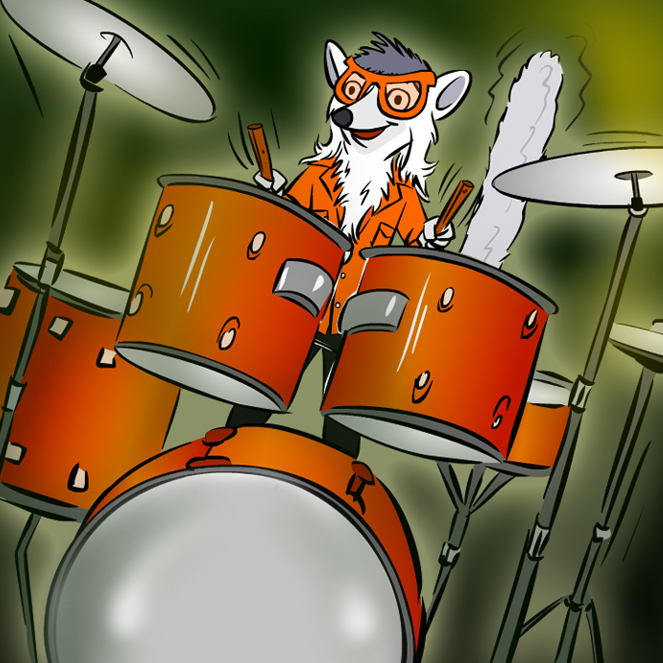 Read or Listen to The Lemur Letter Interview
Read or Listen to The Lemur Letter Interview
[audio:http://www.misterlemur.com/wp-content/uploads/2013/10/MisterLemur-SilkyInterview.mp3|titles=Furry Fashionable & Philanthropic]
The Lemur Letter recently sat down with DJ/producer/musician Douglass “Silky” Sifaka for our “Gimme 5 – Five Questions with a Celebrity” segment. Silky opened up about his childhood, his ear(s), and how we can all make a difference in the forests of Madagascar.
The Lemur Letter:
You are regarded as one of the top musicians in all of Madagascar. How did you get started with music?
Silky:
When I was only 18 months old, my family and I were chased out of our home in Marojejy National Park by illegal loggers. We were then trapped by people catching lemurs for a zoo. The trappers took my parents and my sister, but one of them said to another that I was not cute enough for the zoo, so they let me go.
You would never believe it now, since I am very good looking and stylish today, but I was kind of awkward and funny looking when I was young.
Anyway, the experience with the trappers made me really sensitive about my appearance, and I became quiet and shy. Because of this shyness, I focused all of my free time on music as a kind of escape. Over the next few years all this music practice turned me into an amazing musician. Now pretty much everybody likes me.
I am still skittish from having been chased by loggers and trapped by trappers. My doctor says I have Post Traumatic Stress Disorder, or PTSD.
The way the PTSD effects me – and it is different for everyone – is that I freak out when I am in danger… which is actually a lot, since, you know, I’m endangered.
The Lemur Letter:
What is your greatest strength?
Silky:
I have really good ears. They are really good looking ears, obviously. But more than that, they are really good ears for music. I have the ability to hear a musical note and immediately identify the note as a “C” or a “G” or whatever. That ability is called “perfect pitch.” It helps me record music, play music, and sing along to music. I don’t think I would be such an amazing musician without them.
The Lemur Letter:
I can see why the prevention of illegal logging is such a big issue for you. Tell us a little about your work there.
Silky:
I’ve been helping the Duke Lemur Center and the IUCN raise money to provide education in local villages around Marojejy. There are two key parts to the education. One is to help the locals understand that when they cut down forests in and around the park, they are destroying the lemurs’ homes. But we also have to help the villagers find other ways to make money. Many villagers are cutting down the trees and selling the wood as a way to feed their families.
The Duke Lemur Center is helping these tree cutters develop skills growing crops or working in other jobs, so they can still support their families… without hurting the endangered lemurs. It won’t happen overnight, but through supporting this education, we can all help-